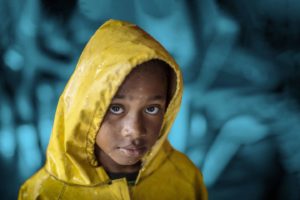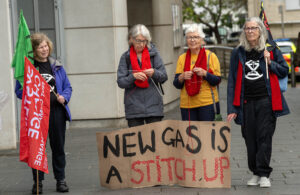Nearly half the world’s children face severe climate threats
One billion children are at ‘extremely high risk’ of the impacts of the climate crisis, according to a new report published by UNICEF.
The report titled: ‘The Climate Crisis is a Child Rights Crisis,’ is the first comprehensive analysis of climate risk from a child’s perspective.
According to a report, young people living in the Central African Republic, Chad, Nigeria, Guinea and Guinea-Bissau are the most at risk of the impacts of climate change.
The Children’s Climate Risk Index (CCRI) reveals:
- 240 million children are highly exposed to coastal flooding
- 330 million children are highly exposed to riverine flooding
- 400 million children are highly exposed to cyclones
- 600 million children are highly exposed to vector-borne diseases
- 815 million children are highly exposed to lead pollution
- 820 million children are highly exposed to heatwaves
- 920 million children are highly exposed to water scarcity
- 1 billion children are highly exposed to exceedingly high levels of air pollution

The report also reveals a disconnect between where greenhouse gas emissions are generated, and where children are enduring the most significant climate-driven impacts.
The 33 ‘extremely high-risk’ countries collectively emit just 9% of global CO2 emissions.
Conversely, the 10 highest emitting countries collectively account for nearly 70% of global emissions. Only one of these countries is ranked as ‘extremely high-risk’ in the index.
Henrietta Fore, UNICEF executive director, said: ‘For the first time, we have a complete picture of where and how children are vulnerable to climate change, and that picture is almost unimaginably dire.
‘Climate and environmental shocks are undermining the complete spectrum of children’s rights, from access to clean air, food and safe water; to education, housing, freedom from exploitation, and even their right to survive. Virtually no child’s life will be unaffected.
‘Climate change is also deeply inequitable. While no child is responsible for rising global temperatures, they will pay the highest costs. The children from countries least responsible will suffer most of all.
‘But there is still time to act. Improving children’s access to essential services, such as water and sanitation, health, and education, can significantly increase their ability to survive these climate hazards.
‘UNICEF urges governments and businesses to listen to children and prioritise actions that protect them from impacts while accelerating work to dramatically reduce greenhouse gas emissions.’
Photo Credit – UNICEF















